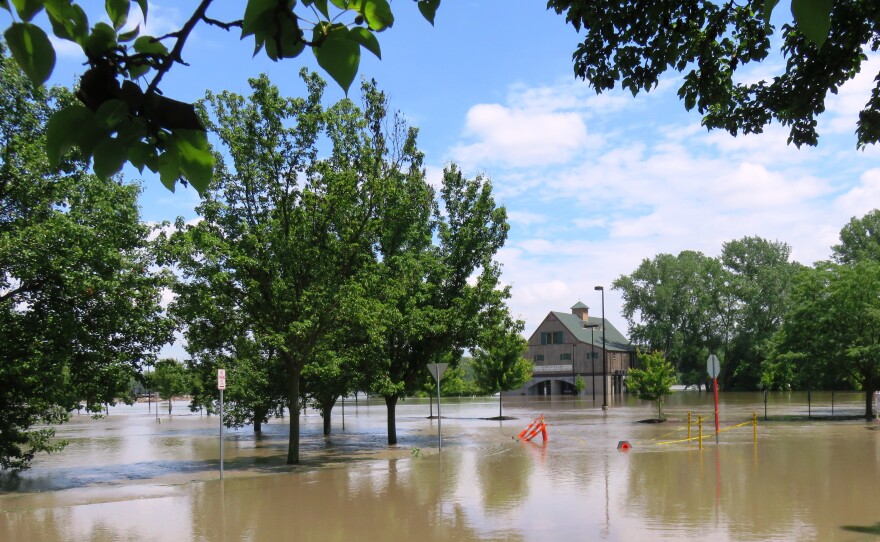An advisory group's recommendations to Gov. Mike Parson that state and federal agencies largely focus on repairing and strengthening levees will not do enough to protect communities from floods, environmentalists say.
Parson created the Flood Recovery Advisory Working Group last summer after record flooding along the state’s major rivers caused widespread damage to many Missouri communities. The group mostly consists of regulators, levee district representatives and members of agriculture associations.
There are no scientists and conservationists to acknowledge that climate change will worsen floods and promote long-term solutions to prevent flood damage, said Maisah Khan, water policy director at the Missouri Coalition for the Environment.
“Yes, we need to fix the levees, we need to get these folks out of this bad situation right now. We need to do the recovery piece, but we need to be focused on resiliency just as much,” Khan said. “It should be 50-50. With this set of recommendations, it’s like 90-10.”
The Missouri Coalition for the Environment and other environmental groups have repeatedly argued that levees will fail eventually. Restoring wetlands and other tactics that allow rivers to flow freely would do more to protect Missouri communities from floods, Khan said.
A few parts of the report recommended using alternative flood-control strategies, such as buying frequently flooded properties. It also recommended supporting efforts in Atchison County to move levees away from the Missouri River.
However, the report still encourages a pattern of building up levees that constrict rivers and asking for government aid when floods destroy property, said Bob Criss, a retired Washington University geology professor.
“All this document is, is trying to focus funding and authority to the ag interests. The people who caused the problem are demanding more funds from the rest of us,” Criss said.
The advisory group also presented some misleading information about flooding in its report, he added.
“They even claimed, incredibly, that urban flood problems aren’t as bad as rural flooding, which is just preposterous,” Criss said. “We have enormous flash-flood problems in all of our urban areas.”
The advisory group plans to produce a final version of its recommendations by late May. Khan wants to see the group provide opportunities for the general public to give feedback on the report and more information on how they suggest putting the recommendations into action.
“I think a lot of these recommendations are pretty vague and broad. The devil is going to be in the details on how they are implemented,” she said.
Follow Eli on Twitter: @StoriesByEli
Send questions and comments about this story to feedback@stlpublicradio.org





